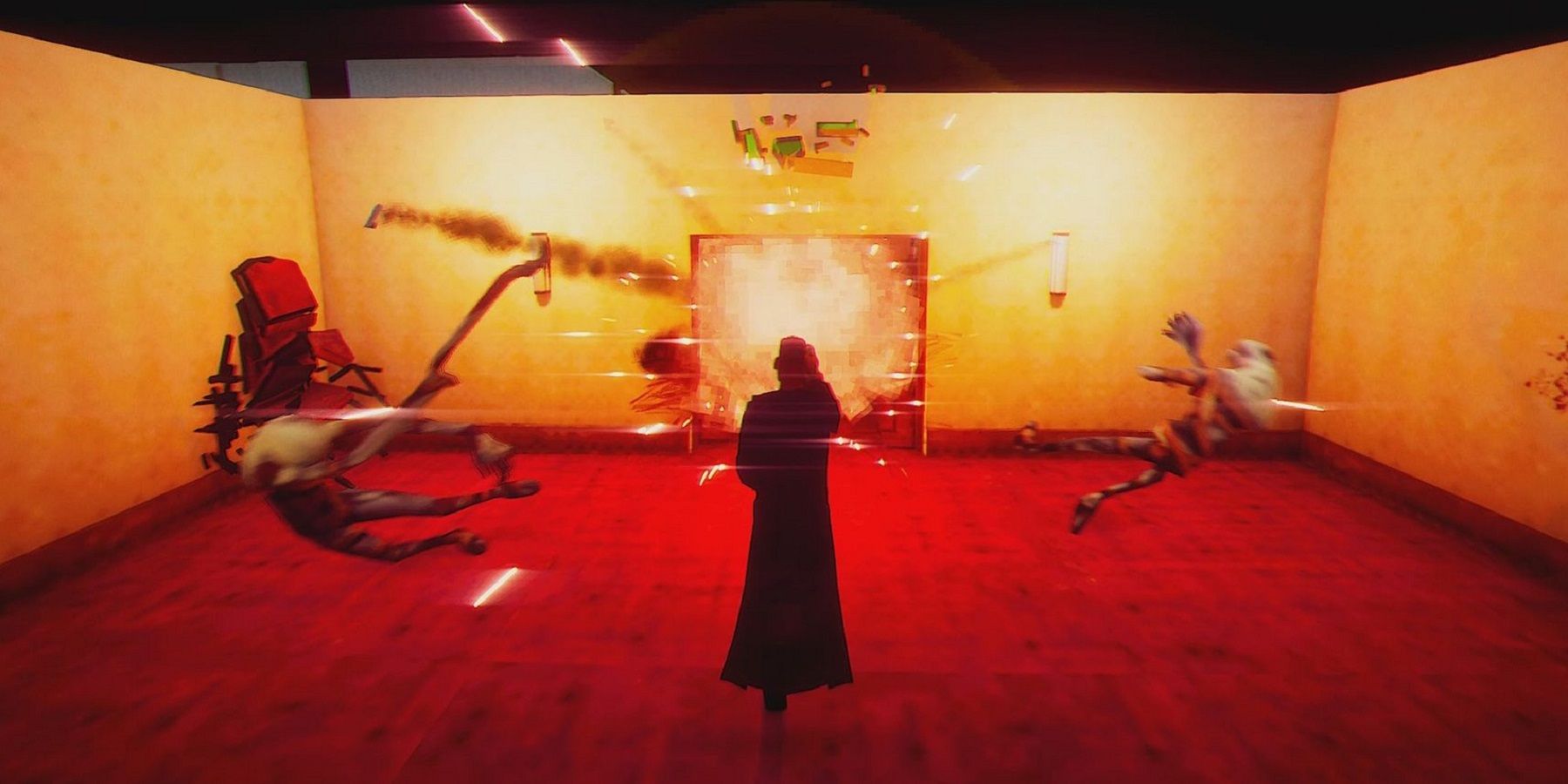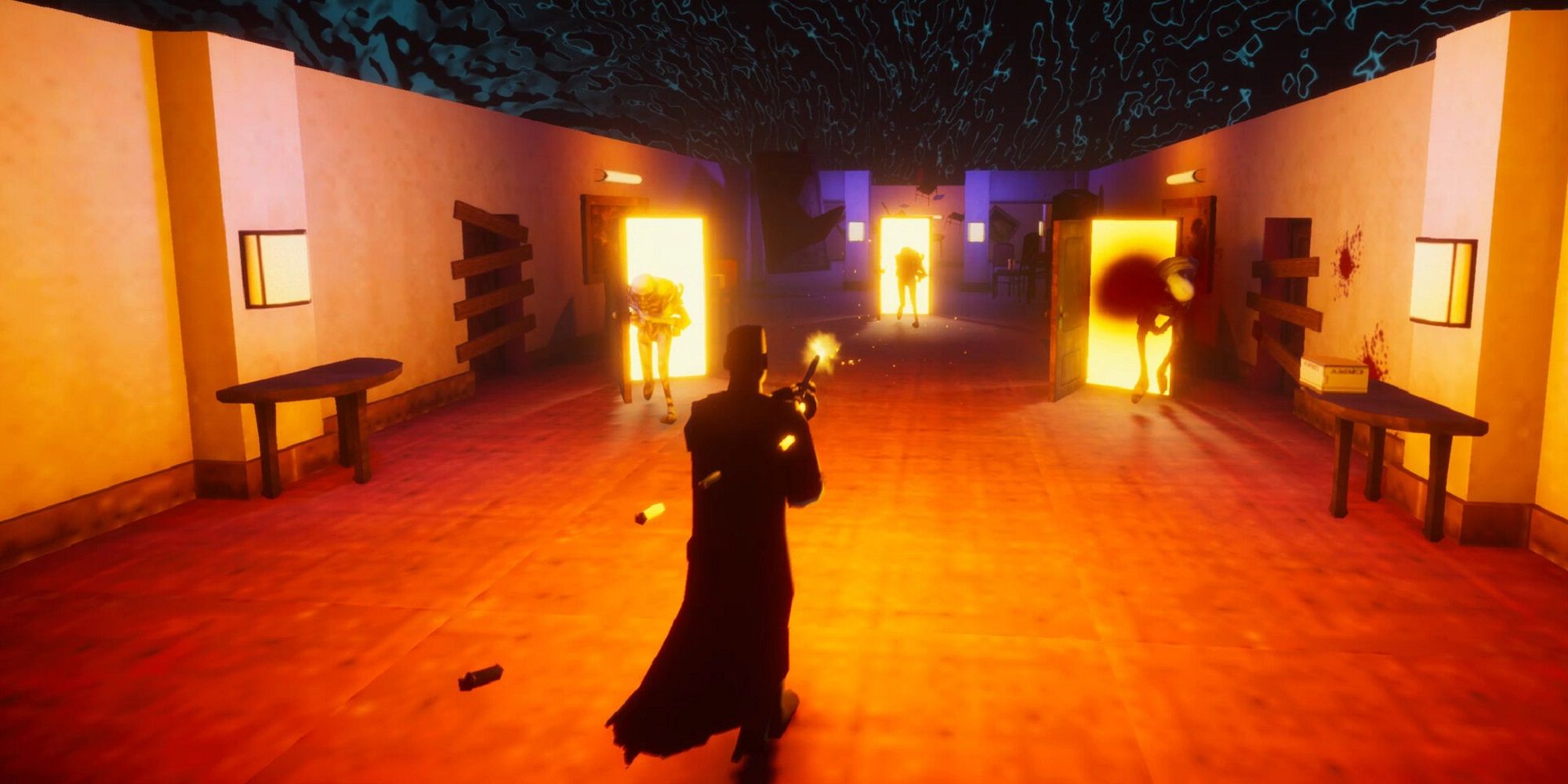El Paso, Elsewhere is a PS2-era fever dream about addiction, third-person shooting, and a vampire ex-girlfriend. But before you get into the powerful opening monologue, before you fire a single bullet or thrust a single stake through a monster’s heart, you’re faced with the difficulty settings.
Where most games would present you with three or four difficulty settings, El Paso, Elsewhere gives you a plethora of sliders and options. It was slightly overwhelming at first, but after a quick browse and a few adjustments, I felt like I was ready to play the game my way.
Note: I’ve been debating with friends whether or not vampires are cryptids and come to the conclusion that no, they are humans with an affliction. The same goes for werewolves.
The settings are broken down into three categories: speed multiplier, damage taken multiplier, and painkiller heal multiplier. Each of these settings operates on a slider. Speed can be set as low as 0.2x and damage taken and painkiller heal can both be set to zero if required. Speed can be set to double, and both damage taken and painkiller heal can be turned up all the way to five times their standard presets.
It’s rare that you see a game with this level of manual options to tweak it to exactly how you want to play, but it’s a dream come true. Finding things tough and want to heal a little bit more with each batch of painkillers? Tune it up a little, and your opponents won’t be easier to take down as they would if you simply switched from ‘medium’ to ‘easy’. It’s an incredibly granular approach to difficulty that lets every player dictate exactly how they want to play the game.
There are two more settings for those who just want to have fun: infinite ammo and infinite painkillers. Both resources are tricky to find in the game, and this would take a lot of tactical thinking out of each level. But if you just want to shoot some foul creatures in a motel, switch ‘em both on and get ready to go.
The other thing I love about this game’s approach to difficulty is its naming conventions. Instead of ‘easy’, ‘normal’, and ‘hard’, it labels its three presets as ‘story’, ‘intended’, and ‘challenging’. There’s no shaming of players who want a more chilled out time, but there’s a clear demarcation of which mode the developer recommends.
You can also see how each setting changes each of the individual sliders. The speed multiplier stays the same for all three, but tweaks to the damage taken and painkiller healing show you exactly what you’re up against on each option.
Video games often file difficulty settings under ‘accessibility’ but that’s a little misleading. Making a game more forgiving doesn’t make it more accessible for gamers with disabilities, but it makes it more approachable for all players. Approachability is important, and while purists may argue that it undermines a game, imagine if twice as many players had fun with Bloodborne because you could tune your Blood Vials to be a little more potent?
Having difficulty settings is not a sign of failure. Playing on easy is no worse than playing on hard. I’d love a Nuzlocke mode, or other higher difficulty setting, for Pokemon games, because battles are so underwhelmingly easy for an adult who’s played them for decades it becomes utterly boring. But I don’t want to turn the millions of kids looking forward to The Indigo Disk away. Having multiple options remedies this, and allows everyone to play it their way.
I don’t imagine many triple-A titles will reach the levels of granular tweaking that El Paso, Elsewhere does, but I’d love them to at least take something from the bombastic indie title. Maybe it’ll be the phenomenally written and performed monologues, maybe it’ll be the vampire ex-girlfriends. But I hope it’s Strange Scaffold’s approach to difficulty settings.


Leave a Reply